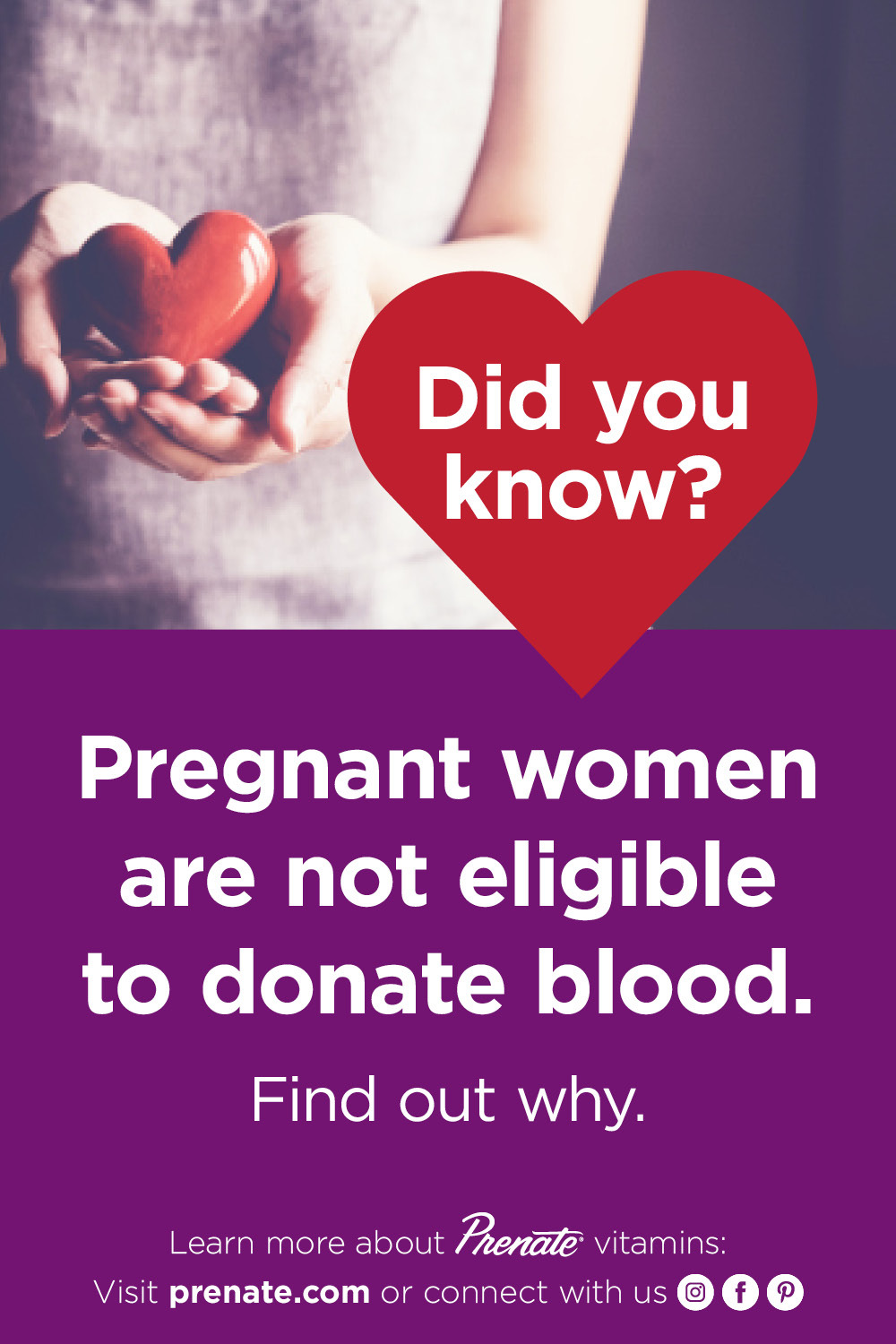Can Pregnant Women Donate Blood?
June 6, 2021
Donating blood is a selfless act of kindness that so many people take part in to save the lives of others in need. And maybe as a mom-to-be, you’re feeling an urge to be nurturing and wondering if you can give blood. Unfortunately, pregnant women are not eligible to donate blood.Why You Can’t Donate Blood if You Are Pregnant
Simply put, you and your developing baby need all of your blood and iron you can get. Even though the amount of blood in your body increases by about 50%1 while you are pregnant, making that additional blood requires greater amounts of iron and vitamins. Low iron levels can occur from blood loss – such as when you donate blood – and trigger a condition known as anemia.
Anemia is fairly common during pregnancy, and 52% of pregnant women develop iron deficiency anemia.2 If left untreated, the condition could lead to preterm birth, low birth weight, prolonged anemia and developmental delays, postpartum depression, and a longer recovery period baby’s birth.
Donating Blood in the Future
Moms can give blood at least six weeks after giving birth, according to the American Red Cross. However, if new moms are breastfeeding, the World Health Organization advises against donating blood and waiting nine months after the pregnancy has ended.3 If you are breastfeeding, your newborn will be relying on you for nutrients and vitamins found in breast milk. Donating blood could deplete them.
Other Ways to Give Back
While new moms patiently wait to be able to give the gift of blood once again, there are other ways you can give back to your communities.
- Host a blood drive. Just because you can’t give blood doesn’t mean you can’t help others give. Working with the assistance of the Red Cross, you can find a location for a blood drive, recruit volunteers, and recruit and schedule donors.
- Make a financial contribution. Donating money enables the Red Cross to maintain an ongoing blood supply and provide humanitarian support to people in need.
- Donate your umbilical cord blood. After your baby is born, you can donate the cord blood to a cord blood bank. This special blood supply contains stem cells that can be used to treat people with life-threatening diseases, including leukemia, sickle cell disease, and immune system disorders. It can also save the life of someone in need of a blood transfusion. If this is something you would like to do, discuss the process with your doctor well in advance of your delivery date.
Prenate® Vitamin Family
This post is brought to you by the Prenate® Vitamin Family, a line of prescription prenatal supplements designed to enhance preconception, prenatal, and postpartum nutrition in women. Talk with your doctor about how taking a daily prescription prenatal or postnatal vitamin could help support a healthy pregnancy and postpartum wellness.
You Are About To Leave This Website
By clicking continue, this link will take you to a website to which Alora Pharmaceuticals Policies & Terms of Use do not apply. Alora and its subsidiaries do not control the content or accuracy of third-party websites and assume no responsibility for their use.












